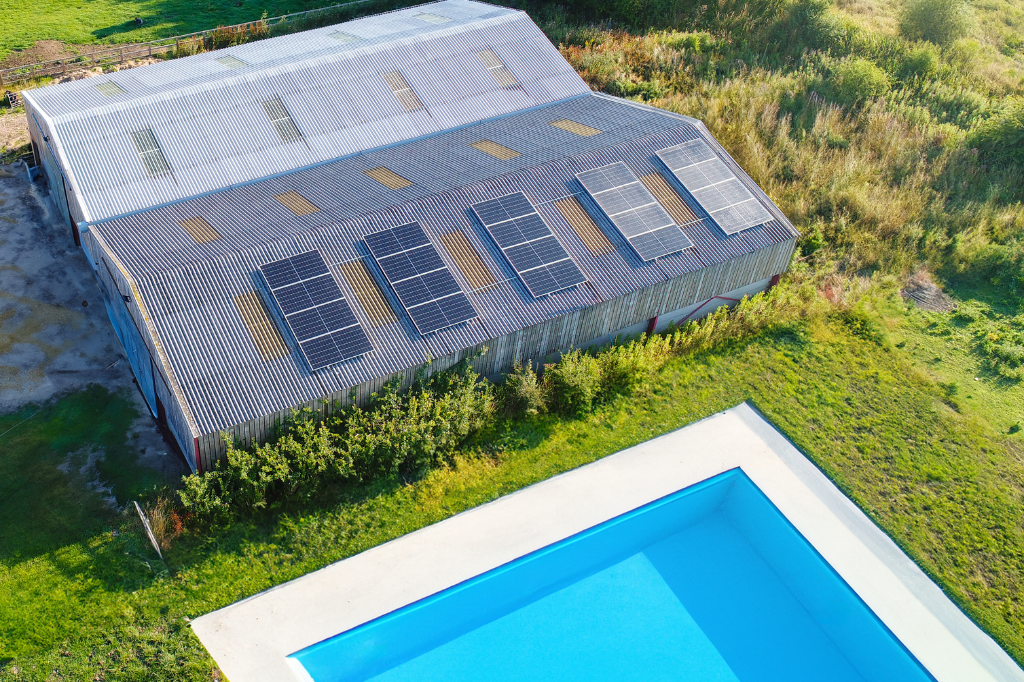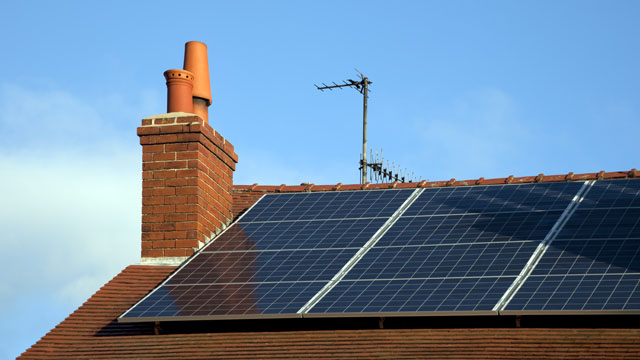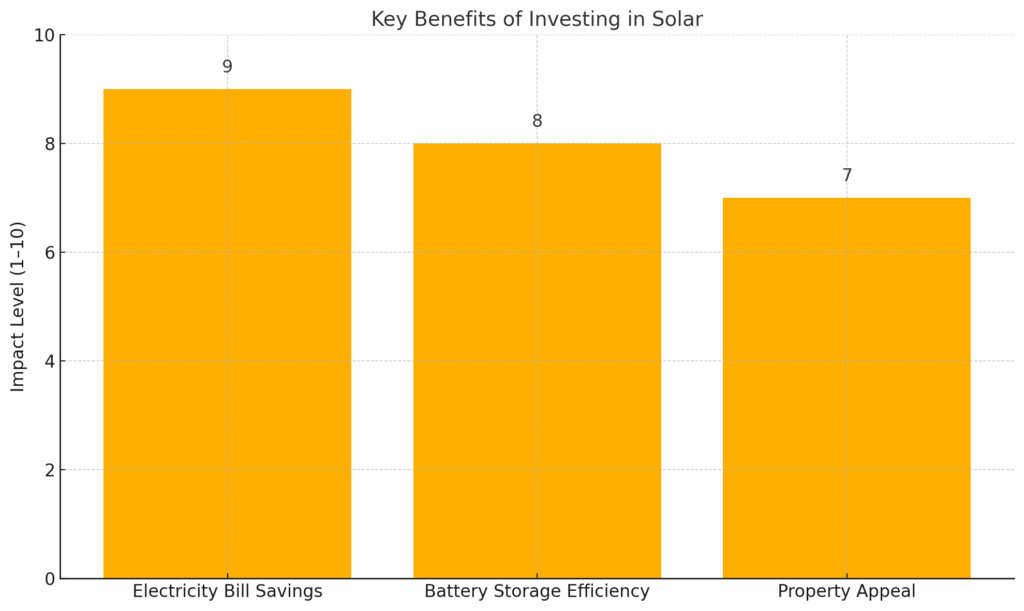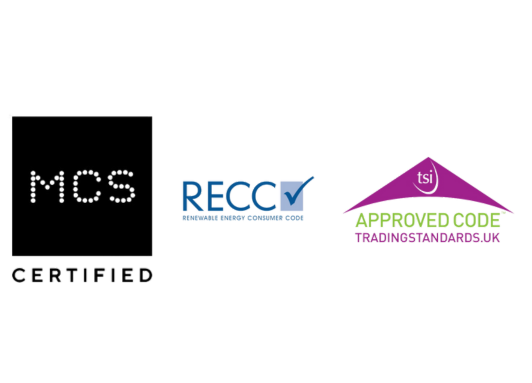As we head into the sunnier months, it’s the ideal time to explore how solar can work for your home. With longer days and more daylight hours, summer is the season when solar for the house delivers the most value. Whether you’re considering an upgrade, a brand-new system, or just learning how solar fits into your lifestyle, these FAQs will help you understand the benefits, costs, and potential of solar and energy systems in the UK.

The Full Meaning of Solar
What does the word ‘solar’ mean?
The term “solar” refers to anything relating to the sun. In the context of renewable energy, it typically means systems that convert sunlight into usable electricity, such as solar cells found in panels. These cells harness sunlight through a photovoltaic process, meaning they can turn light into electricity without any moving parts or emissions. This is what powers everything from solar lights for outside to full-scale home solar arrays that can run your entire home.
Where does the term come from?
The origin of the word “solar” is Latin — solaris, meaning “of the sun.” While it was originally used in astronomy, the term has been adopted into modern language to refer to a wide range of energy solutions, including solar light products, solar garden systems, and solar battery systems. Its evolution reflects how vital solar has become in daily life, especially as homeowners look for sustainable, cost-saving technologies.
How is it used today in energy?
Today, “solar” most often describes energy systems that reduce electricity bills and carbon footprints. It includes not just panel solar UK installations, but also smaller additions like solar security lights, decorative solar garden lighting, and even solar generators for backup power. These systems are now mainstream, offering cleaner alternatives to traditional electricity while taking advantage of free sunlight — especially valuable during the summer months.

What is the 20% Rule for Solar Panels?
What does 20% efficiency mean?
When a solar panel has 20% efficiency, it means that 20% of the sunlight it receives is converted into electricity. While it might sound low, this is actually very effective. Most solar cells used in UK homes range between 17% and 22% efficiency. It’s a common misunderstanding that solar panels should convert all the sunlight — in reality, anything above 20% is considered high performance. With today’s technology, panels with this level of efficiency, when paired with a solar battery system, can generate enough energy to meet most of your household’s daily needs.
What is the solar 120% rule?
The 120% rule is about sizing your system to produce slightly more than your current usage. In practice, this means you can install a system that covers up to 120% of your previous year’s electricity use — great if you’re planning to add electric heating, a car charger, or grow into your energy needs. It also allows you to fully benefit from your roof’s potential during summer when the sun is strongest. Any extra power can be stored using solar to battery storage or exported back to the grid under export guarantee schemes.
Can I install more than 4kW of solar?
| Factor | Details |
|---|---|
| Standard System Size | 4kW is typical for UK homes |
| Larger System Possibility | Yes — if you have sufficient roof space and the necessary permissions |
| Best for Larger Systems | Homes planning to use battery storage, solar generators, or run energy-intensive devices like EV chargers and heat pumps |
| Summer Advantage | Larger systems generate more surplus electricity in summer |
| Energy Use Options | Surplus electricity can be stored in batteries or exported back to the grid |

Is Solar Still a Good Investment?
Solar saves money in the long run
The most direct benefit of installing home solar arrays is reducing your electricity bills. With a good-quality solar for the house setup, you can generate a significant portion of your electricity needs from your roof, especially during long summer days. While the solar energy cost upfront can be several thousand pounds, most homeowners see the system pay for itself within 6–10 years. After that, you’re essentially enjoying free electricity. The VAT relief on solar installations and smart export payments make the case for solar even stronger.
Battery storage boosts efficiency
The addition of a solar battery system makes solar even more cost-effective. Instead of exporting your unused daytime electricity, battery storage allows you to use it in the evening or during power cuts. This maximises your self-consumption — the percentage of solar electricity you actually use — which is critical for lowering costs. With solar to battery storage, you can achieve energy independence, making your home more self-sufficient and less reliant on volatile grid prices.
It adds appeal to your home
Homes with solar tend to attract more interest on the property market. Buyers are increasingly looking for homes with lower running costs, and a modern panel solar UK setup signals long-term savings. Even smaller touches like solar lights for outside, a well-planned solar garden, or a motion-sensing solar security light improve energy efficiency and overall appeal. In summer, these features shine brightest — both functionally and visually — making your home feel greener and smarter.

Is Solar Right for You?
Solar power remains one of the smartest long-term investments for UK homeowners. Whether you’re aiming to cut your energy bills, gain more independence from the grid, or increase the appeal of your property, a well-designed solar setup can deliver real value.
With the added benefits of VAT relief, smart export payments, and battery storage options, the case for solar is stronger than ever. If you’re considering upgrading your home with solar technology, our team is here to help.
Contact Us
New World Energy
Smart solar and battery storage installations across the UK.
Email: info@new-worldenergy.co.uk
Phone: 01865 600016
Website: www.new-worldenergy.co.uk
Ready to explore your options? Get in touch today and we’ll help you find the right solution for your home.

